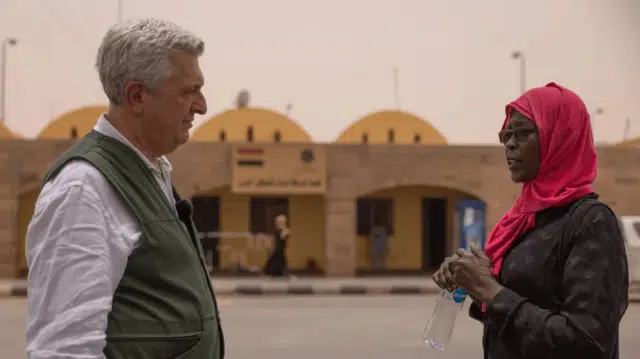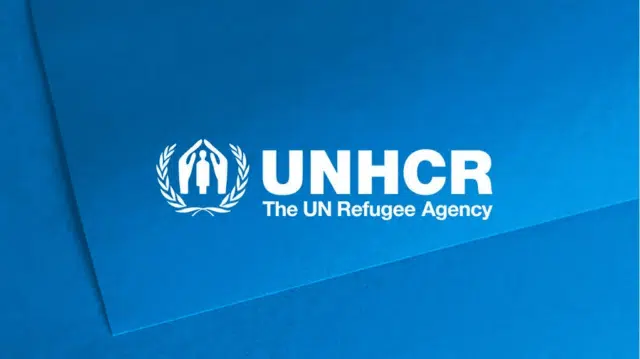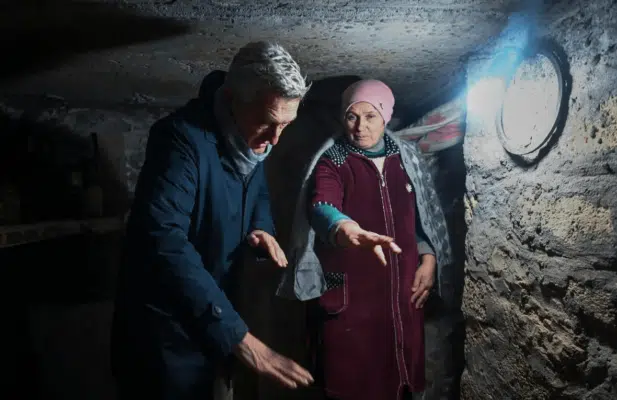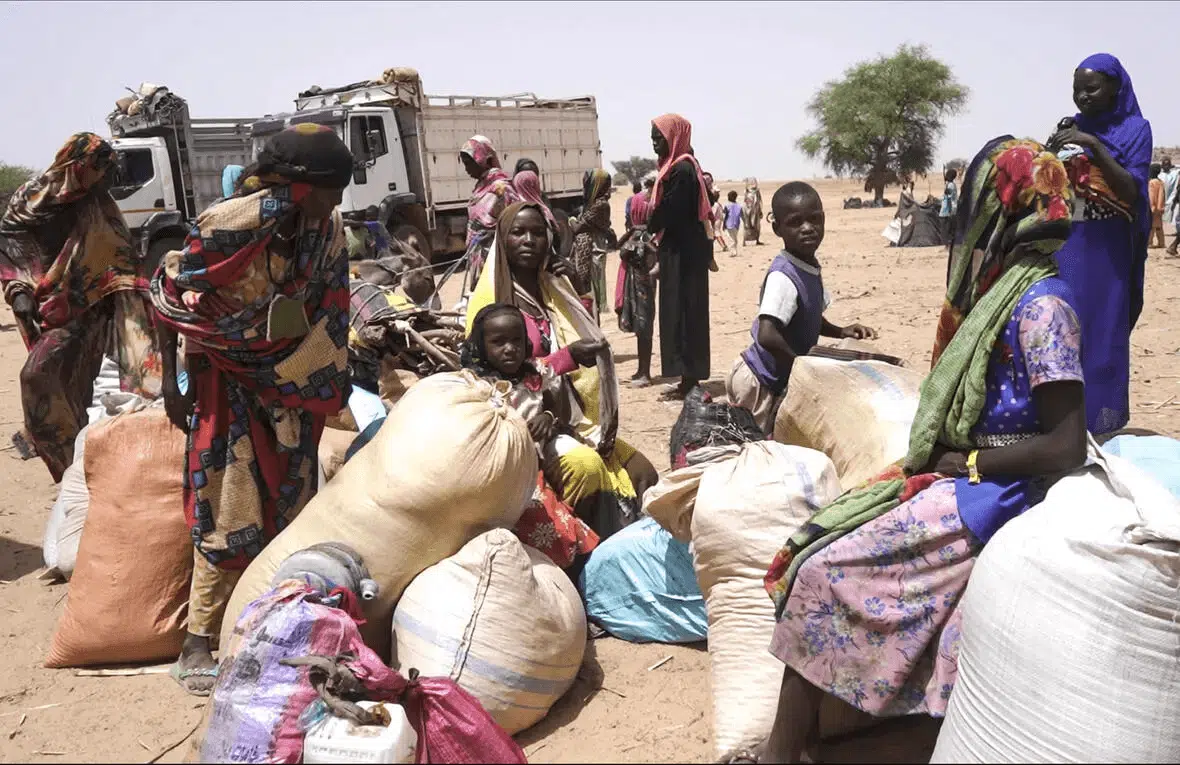
Sudanese refugees gather with their belongings in preparation for being transported to Gaga camp, 130 kilometres from the border. © UNHCR/Insa Wawa Diatta
As Sudanese refugees continue to cross into Chad, UNHCR has started relocating them away from the border to existing camps.
There is a lot of activity in the town of Goungour in south-eastern Chad, near the border with Sudan as families prepare to board trucks with their belongings, including their animals.
UNHCR, the UN Refugee Agency, has started the process of relocating thousands of Sudanese refugees to a camp 130 kilometres away. The trucks are transporting most of the refugees and their livestock while smaller vehicles take vulnerable people including the sick, elderly, and disabled.
But even as the relocations get underway, more people continue to arrive to Goungour after fleeing the ongoing fighting in Sudan. The violence that started in the capital, Khartoum, in mid-April has reawakened inter-communal conflicts in Sudan’s western Darfur region which borders Chad.
Guisma Bachir, 27, fled her village of Misterei in West Darfur, 35 kilometres from the border, and has already spent 11 days in Goungour. “The armed men hit us when we went to fetch wood, and they didn’t let us go to our fields. That’s why I came. I put the children on donkeys, and I walked for a day before coming across the Chadian border,” she explained.
Kaltouma Adam Khamis also fled Misterei with teenage children but had to leave her husband behind. “We have left our village because of the war, we are looking for a place to live in peace,” she said. “There was fighting in El Geneina [capital of West Darfur] and we were afraid it would reach our villages. To save our children and our lives, we fled and came here.”
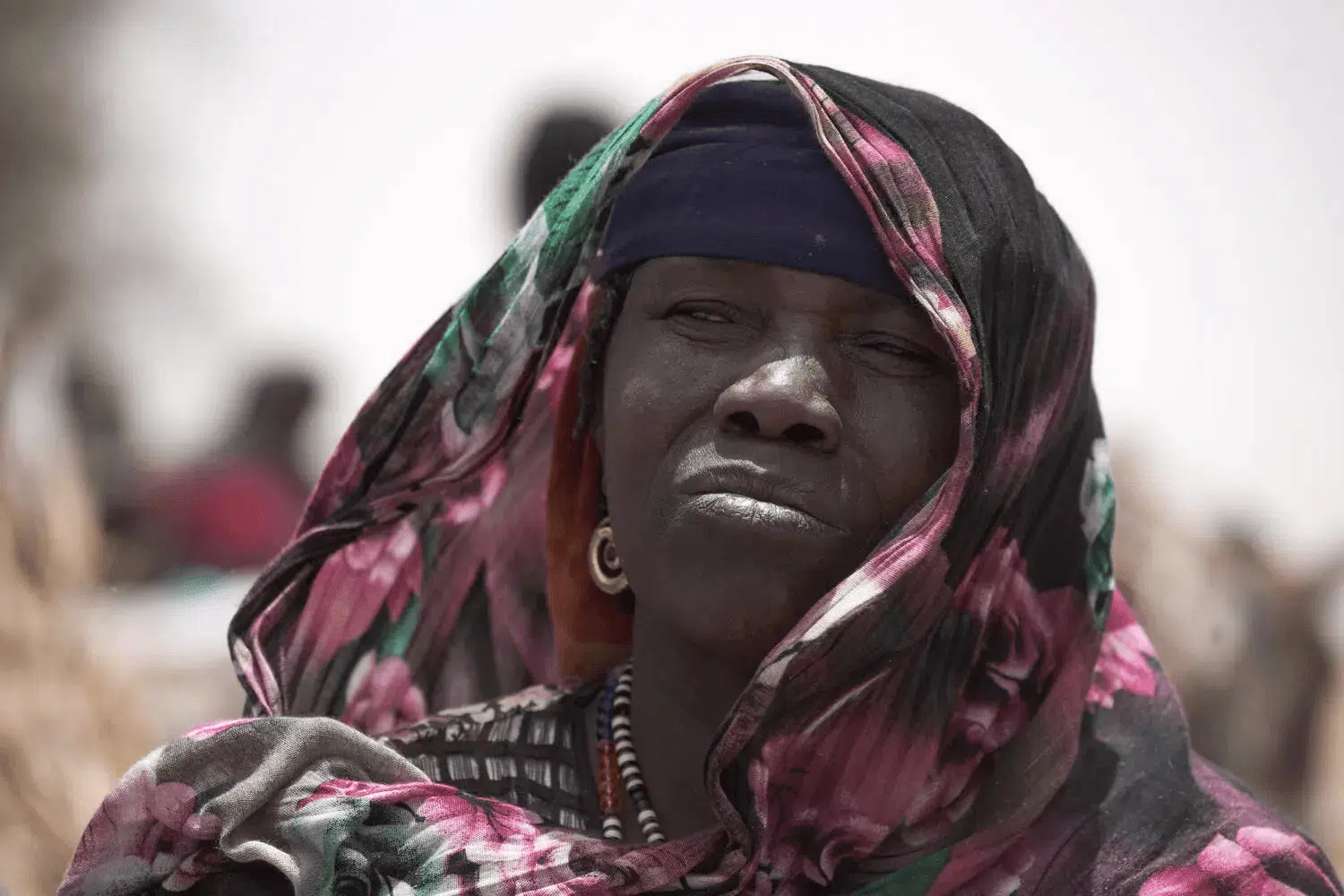
Kaltouma Adam Khamis fled Sudan with her five children, leaving behind the land she had farmed and her husband. © UNHCR/Insa Wawa Diatta
Relocations relieve pressure
While Chad has kept its borders open, the arrival of more than 115,000 refugees in two months has put immense pressure on already stretched public services and resources. In the sites where the refugees have been arriving – most of them women and children – there is an urgent need for more water, food, shelter, access to healthcare, and protection. When the rainy season begins in a matter of weeks, delivering assistance to Goungour will become even more difficult.
To ensure the refugees can receive more aid, and for their safety, UNHCR, with the help of its partners and the Chadian government, is moving them away from the border to Gaga camp, which has been home to 28,000 Sudanese refugees since 2005.
Surrounded by her six children and everything she owns, Guisma is ready to leave. “What I want to find in Gaga is food, soap, and education for my children. If I go to Gaga and find peace and stability, I’ll look for work to support my children,” she said.
The Chadian government has made more land available to extend Gaga camp so that shelters and latrines can be built for the new arrivals. Other camps are also being extended and over 2,500 shelters have already been erected to accommodate nearly 14,000 refugees relocated from the border in recent weeks.
“We have healthcare, we have schools, we have water, and we also have partners, notably the government … who are there to provide their support so that these refugees can rebuild their lives again,” said Temon Tchangbele, UNHCR protection associate at Gaga camp.
After a 12-hour journey on a bumpy, dusty road, Guisma and her family arrived safely in Gaga and moved into a semi-durable shelter in the camp’s new extension. “I felt so comfortable when I arrived,” she said. “We can now fetch drinking water not far from the new house, and a hot meal for the children was ready when we arrived, so everything’s fine.”
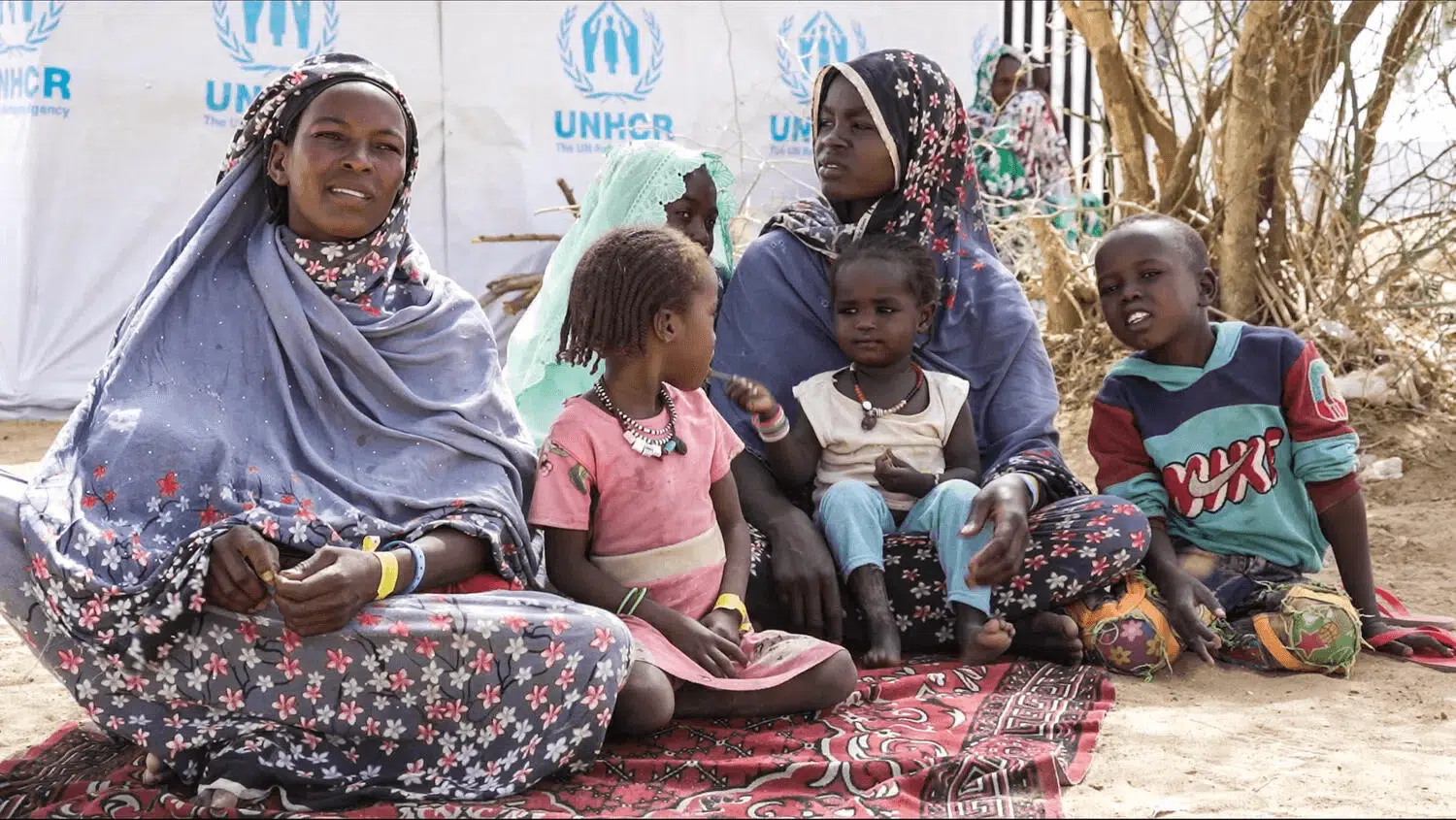
Guisma Bachir and her family, refugees from Sudan, sit in front of their new shelter at Gaga camp in Chad. © UNHCR/Insa Wawa Diatta
“We feel at peace”
Her countrywoman, Kaltouma Adam Khamis, has also chosen to relocate. “Since we arrived here, we feel at peace, there are no guns screaming. The problem is that my husband could not follow me, but he will join me as soon as possible. Here, in Gaga, there are no armed men, and there are no problems, I want to stay here,” she said.
Before the current crisis, with the support of international financial institutions, Chad had been moving towards greater autonomy for refugees through livelihood programmes and agricultural projects.
On a visit to Gaga on 21 May, UNHCR’s Assistant High Commissioner for Operations, Raouf Mazou said those efforts should continue: “We need to make sure that as fast as possible, we move from dependence on humanitarian assistance to self-reliance. And therefore, we have to bring development actors into the picture as fast as possible.”
UNHCR, together with humanitarian partners, has launched a funding appeal for $470.4 million to support over 1 million people, including refugees, returnees, and third-country nationals, affected by the crisis in Sudan.
Originally published by UNHCR on 15 June 2023.



